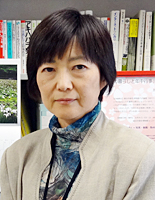Response to familiar responsiveness Masako Nakamura (Professor of Tokyo City University)

One of the initiatives that we are paying attention to in terms of citizen collaboration is the next-generation citizen collaboration platform My City Report (MCR).
The MCR was developed mainly by the University of Tokyo under a research contract from the National Institute of Information and Communications Technology.
It provides the “MCR Posting App” for citizens to report non-emergency road conditions and the “AI-based automatic road damage detection app” for road administrators. After the research period (FY2016 to FY2018), a new consortium was established, and as of June 2023, there are 31 local government partners (from the consortium’s website).
In the history of local communities and ICT, while there have been reports of favorable results in the research and demonstration testing stages, there have been many efforts that have struggled and failed in full-scale implementation. This project continues to improve, increasing the number of partner local governments and citizen users even after the research is completed.
The membership fee system reduces costs, which is also helpful in terms of business sustainability.
In particular, I would like to pay attention to the significance of the “MCR posting application” for citizens. By directly posting problems that citizens notice while using roads on a daily basis, it can be said that tens or even hundreds of volunteer supporters have appeared for the task of monitoring the total length of roads for the department in charge. Since photos and location information are reported as a set, highly reliable data can be obtained, and there is also the advantage that the poster can easily convey the inconvenience they feel and respond.
When citizens participate in community development, it is essential to have a sense of trust that the government will respond to their efforts (response). After posting, the app visualizes the results of your actions through feedback such as “submission received” and “response status”, and is designed to increase the effectiveness of the citizens who posted. Even if it seems small, the accumulation of such exchanges contributes significantly to building trust.
In addition, it is reported that many of the citizen users are men of the working generation who had little interest in the government, and that it has become a new point of contact with the government.
Another important point is that government officials can increase their collaborative experience with citizens through the app. At the Citizen Collaboration App Summit in the fall of 2022, one local government official reported that the biggest hurdles to introducing MCR were the increase in workload and the psychological burden of communication.
However, in the end, thanks to the accurate location information, the posts were confirmed smoothly, and there were almost no phone inquiries from the posters, which led to a reduction in both the burden on citizen administration.
In addition to the difficulty of increasing citizen participation, a major bottleneck in civic collaboration is the sense of unease and distrust of the administration’s response to residents.
By accumulating experiences of collaboration one step at a time, government officials can become accustomed to how to interact with citizens, which can be said to be a great achievement in promoting citizen participation.
